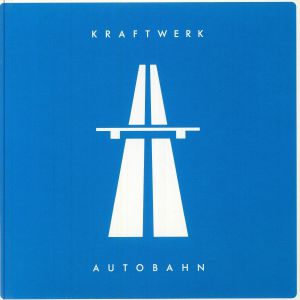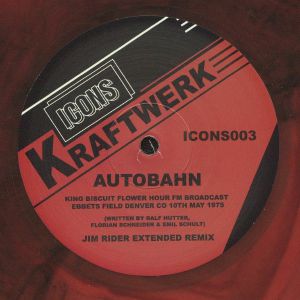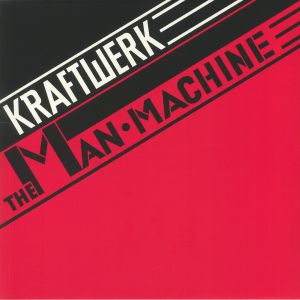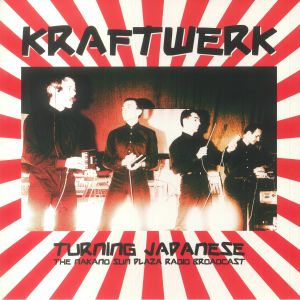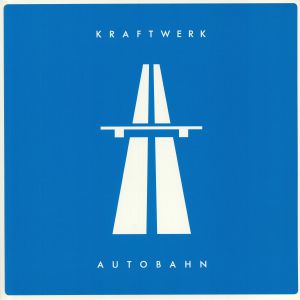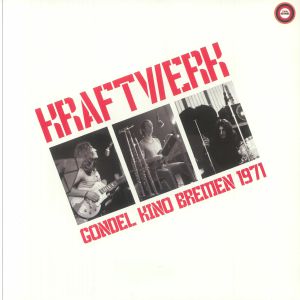Filter
Type
Artist
Featured
Release Title
Price
Experimental/Electronic charts
Bestselling Experimental/Electronic vinyl
Artikel 1 bis 6 von 6 auf Seite 1 von 1 anzeigen
Review: Kraftwerk are as well known for their albums as they are their singles and the iconic 'Autobahn' is of course the name of both. It is a rather groundbreaking electronic gem originally released in 1974 and soon revolutionised music with its hypnotic synth melodies, driving rhythms and pioneering use of vocoders. The track - celebrating its 50th anniversary and here on 7" - alongside an album picture disc and new Dolby Atmos mix on CD, which seal the birthday celebrations - captured the essence of modern travel by blending motorik beats with atmospheric soundscapes to create a real electronic journey and sense of movement. It still sounds as futuristic now as ever, a record that truly changed the course of modern music forever.
… Read moreGespielt von: Juno Recommends Leftfield, Juno Recommends Experimental
! low stock $9.94
Autobahn (Jim Rider remixes) (limited red smoke vinyl 12")
Cat: ICONS 003. Rel: 25 Jul 24
Review: 'Autobahn' by Kraftwerk, released in 1974, is a seminal track that redefined the future of electronic music. Its significance lies not only in its innovative use of synthesisers and electronic instruments but also in its ability to evoke a specific visual and emotional landscape. Here, the song's repetitive, motorik rhythms are given an overhaul - or more specifically three - by Jim Rider, a regular at Lee Burridge's All Day I Dream parties. They're beefed up for the floor, certainly, but maintain the kind of delicate touches that makew the original such a great listen.
… Read moreGespielt von: Juno Recommends Leftfield, Juno Recommends Experimental
in stock $16.32
The Man Machine (reissue) (limited heavyweight translucent red vinyl LP)
Cat: 019029 5272333. Rel: 09 Oct 20
Review: There isn't a more hit-packed Kraftwerk album than The Man Machine. First released in 1978 and here reissued on red vinyl accompanied by a fresh booklet of vintage images, the album boasts some of the German band's best loved songs, including 'The Robots', cheery sing-along 'The Model', the staggeringly good 'Neon Lights', and the bubbly title track. It shows how good the album is that such gems as 'Metropolis' and the picturesque 'Spacelab' - cuts that most other bands would kill to be able to write - tend to be ignored or overlooked. If you love electronic music, you need a copy of The Man Machine in your collection.
… Read moreGespielt von: Juno Recommends Leftfield, Juno Recommends Experimental
in stock $24.07
Cat: MIND 838. Rel: 11 May 23
Review: Recorded in 1981, Turning Japanese captures Kraftwerk at the absolute height of their creative dominance, but sometime before their true induction into the household name superstar category of artists. Still representing a very forward thinking, boundary pushing and - as a result - specialist sound, this nine-track live recording feels like yesterday's tomorrow.
Opening with a stunning neo-classical synth overture, we're then taken on a journey through the mind of the man machine, an industrial yet somehow strangely human proto-electro world that is defined by order and structure, while still allowing for enough funk and groove to make sure feet, hips and more move seemingly of their own volition. Perhaps not the most insightful take on the pioneering German band - nothing here that hasn't been said before - nevertheless we hope it goes someway to describing how precise, refined and overwhelmingly infectious they can be on stage.
… Read moreOpening with a stunning neo-classical synth overture, we're then taken on a journey through the mind of the man machine, an industrial yet somehow strangely human proto-electro world that is defined by order and structure, while still allowing for enough funk and groove to make sure feet, hips and more move seemingly of their own volition. Perhaps not the most insightful take on the pioneering German band - nothing here that hasn't been said before - nevertheless we hope it goes someway to describing how precise, refined and overwhelmingly infectious they can be on stage.
Gespielt von: Juno Recommends Leftfield, Juno Recommends Experimental
in stock $14.94
Autobahn (reissue) (limited heavyweight translucent blue vinyl LP + 12 page booklet)
Cat: 019029 5272432. Rel: 09 Oct 20
Review: Autobhan, the 1974 album that began Kraftwerk's ascent to legendary status, is still capable of making the hairs on the back of your neck stand on end. The headline attraction remains the absorbing, mesmerising, 22-minute title track, a musical whizz down an imaginary three-lane highway that's as evocative and atmospheric as they come. That said, the album's lesser-celebrated, more experimental flip-side tracks (and in particular the jaunty 'Kometenmelodie 2'), are also inspired. Here it gets the 2020 reissue treatment via a tasty blue vinyl pressing that comes packaged with a 12-page booklet of historic photos and typically utilitarian imagery.
… Read moreGespielt von: Juno Recommends Experimental, Juno Records Staff Picks
! low stock $27.93
Review: This release, which was recorded for Bremen Radio in 1971, features four extended tracks showcasing German pioneers Kraftwerk in a very different light from their later work. The short-lived lineup of Schneider, Rother and Dinger fused electric guitar with their then-signature electronic sounds and it gives rise to unusual, exciting and innovative music. Half of the tracks here, as hardcore fans will recognise, are drawn from their debut album, Kraftwerk 1, and the recording quality is excellent. This release also includes full recording details along with extensive sleeve notes that help offer a fascinating glimpse into Kraftwerk's early, experimental sound before their more iconic and pioneering electronic phase.
… Read moreGespielt von: Juno Recommends Experimental
in stock $21.85
Artikel 1 bis 6 von 6 auf Seite 1 von 1 anzeigen

 USD
USD





